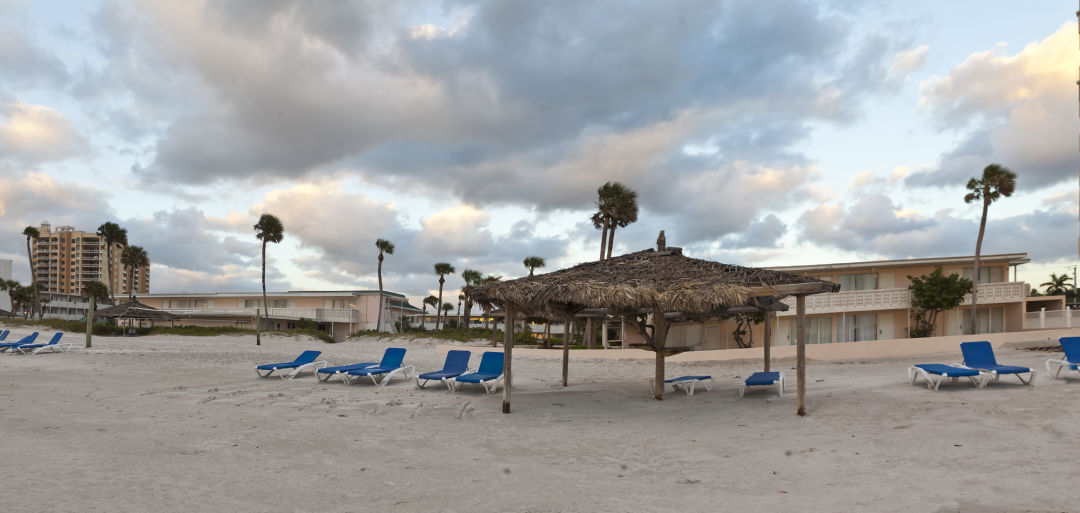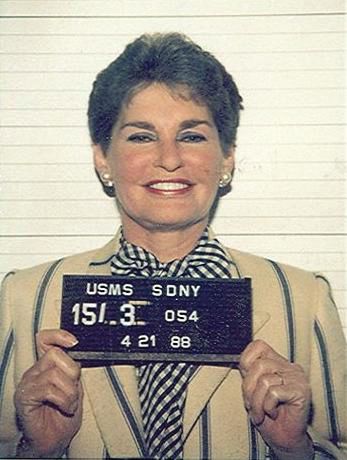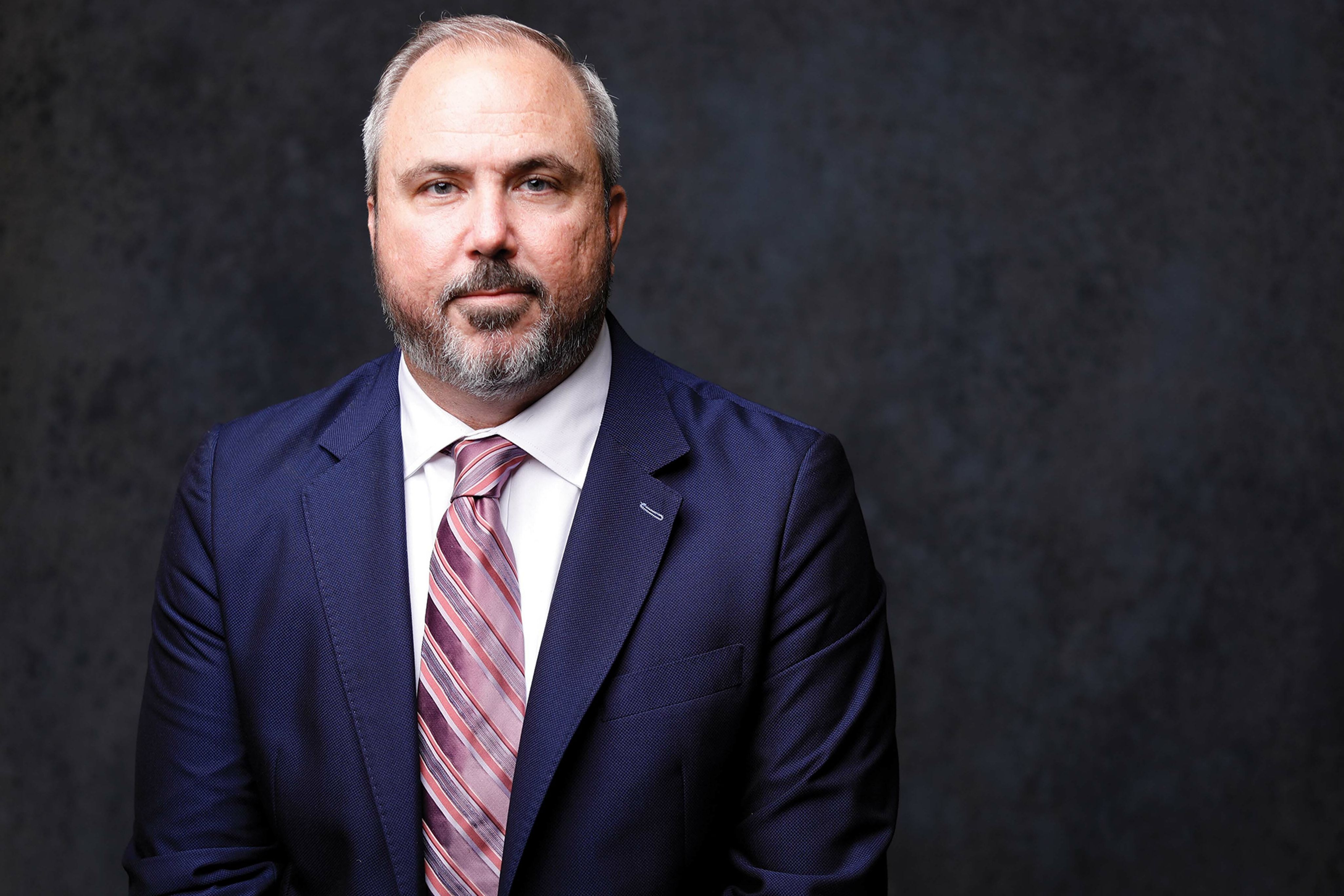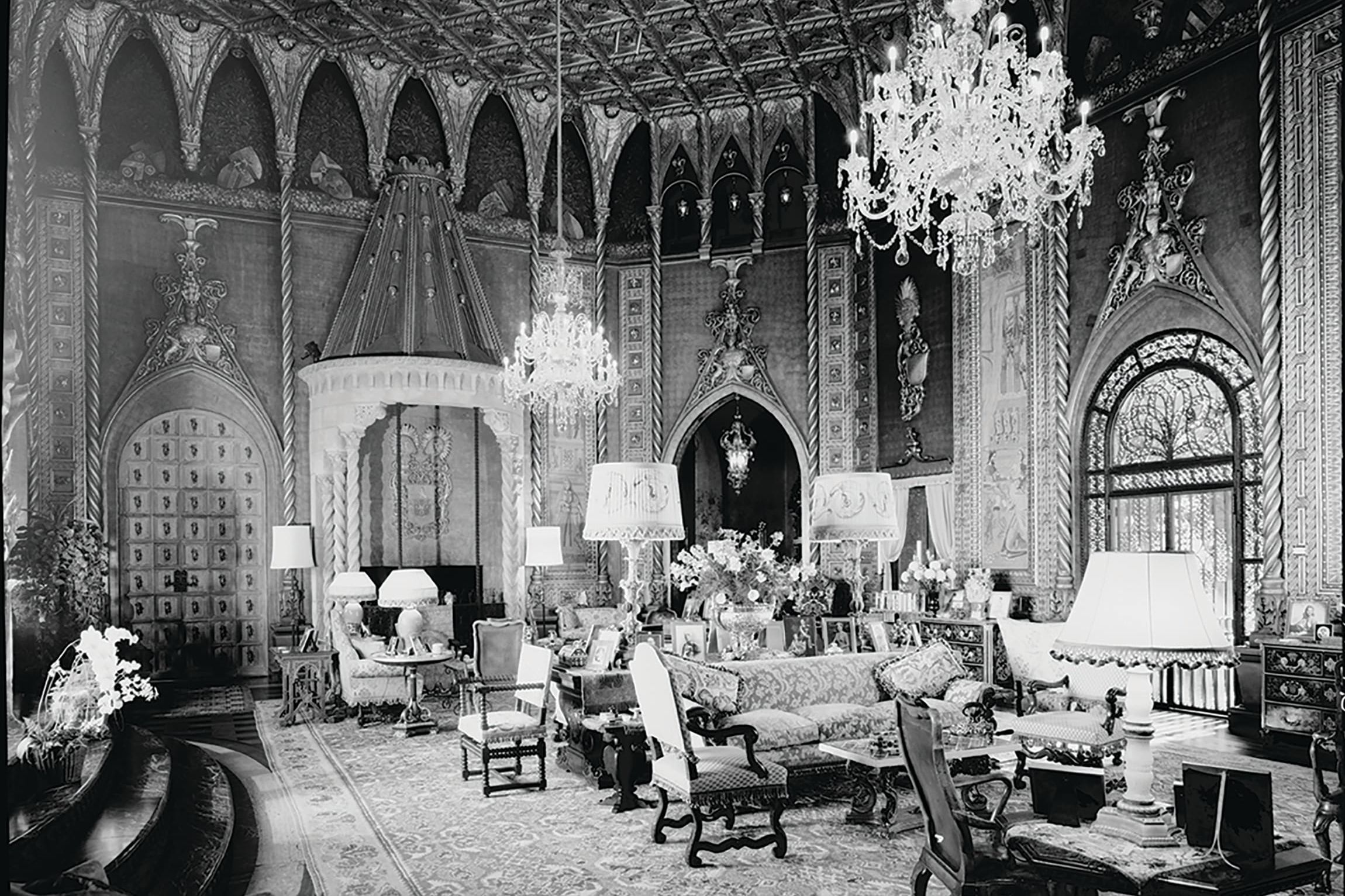The Ghostly Links Between Lido Key's Sandcastle Resort, the Late Leona Helmsley—and Donald Trump

A beachside view of the Sandcastle
Image: Gene Pollux
The Sandcastle Resort on Lido is a place you either love or you hate. The online reviews seem to be talking about two different hotels. “Expensive dump,” says one. “Horrible!” says another. “Damp, sandy carpet.” “The roof was leaking.” The complaints go on and on.
But then there’s “Superb!” “Great hotel” and “charmingly outdated.” It’s “like going back to your childhood.”
Which is it?
A little of both, actually. The Sandcastle is one of Southwest Florida’s oldest beachfront hotels, dating back to 1953. It’s like a motel in style, stuck in a 1980s remodel, with two pools, a tiki bar, and a surprisingly good—and rather expensive—dining room. The clientele is largely European, lured by low prices (off-season rates start at $129) and the incredible 600-foot stretch of beach right outside your door. It’s so European, in fact, that they automatically add the tip to your restaurant and bar bill.
The Sandcastle is scheduled to be torn down and replaced by a much larger luxury hotel with all the latest amenities. This being Sarasota, the planning and permitting process will probably take years, which gives you plenty of time to make one last visit. And as you wander around the property, keep an eye open for a ghost or two. One is human and one is four-legged.
The human ghost is Leona Helmsley, who owned the hotel for many years and often came for lengthy visits. Leona had been fading into the past, but with the rise of Donald Trump she is becoming relevant again. The two were arch-rivals in the world of New York real estate, and their feuds, fights and lawsuits entertained tabloid readers for decades. He called her “a truly vicious human being.” “I can’t wait to read Trump’s new book,” she shot back. “Especially Chapter 11.”
They were cut from the same cloth, a sort of yin and yang, male/female walking examples of how cutthroat doing business in the Big Apple could be. He was from Queens, she was from Brooklyn. He inherited money, she married it. They could never quite enter the real Manhattan establishment—they were too brash, too greedy, too rough around the edges. And therein lay the root of their ambition: to prove themselves smarter than everybody else, to avenge the slights and insults, to stop at nothing to satisfy their endless need for attention and power.
Leona’s journey to the top began when she met Harry Helmsley. It was the early 1970s. Helmsley was the undisputed king of New York real estate, owning or controlling hundreds of buildings. One was so large it had its own zip code. He was everything the young upstart Trump was aspiring to be. Leona was a thrice-married condo saleswoman with a reputation for being aggressive in her tactics. She swept Harry off his feet, and he divorced his wife and they began running the company together.
Leona’s niche in the business was the hotel chain. It was a hodgepodge of 30 or so properties, ranging from the elegant Helmsley Palace and the Park Lane in New York all the way to the already dated motel-like Sandcastle in Sarasota. It was Leona’s genius to pull the chain together with an advertising campaign that put them on the map and made it enormously profitable.
Leona was a pioneer when it came to branding. She became the image of what she was selling, with a series of full-page ads featuring herself as The Queen. In an elegant evening gown and with her enormous gig-lamp of a smile, she would tell the reader, “I won’t settle for a skimpy towel. Why should you?” The narrative was simple and compelling. Leona was in charge, hunting down dust, lazy employees and any imperfection, no matter how slight.
And there was a great deal of truth to this image. Some dubbed her “The Queen of Mean,” a tyrant who would fire employees for the slightest transgression. Attorney Alan Dershowitz tells the story of lunching with her when the waiter brought her tea with a couple of drops spilled onto the saucer. She grabbed it and threw it on the floor, then made the waiter kneel down and beg to keep his job.
The 1980s were Leona’s heyday. The ads made her a celebrity, and her money—at their peak the Helmsleys were worth around $5 billion—made her a symbol of the era’s excess. She and Harry—the marriage was an unqualified success, everyone seems to agree—had a 10,000-square-foot apartment on top of the Park Lane complete with swimming pool, another penthouse in Palm Beach, a home in Arizona, a private jet. Then they bought a 26-acre estate in Greenwich, Connecticut, and the dream began to unravel.
Like most new homeowners, the Helmsleys wanted to tweak the place to make it their own. One of their improvements was a million-dollar marble dance floor to be placed over the swimming pool for Harry’s annual “I’m Just Wild About Harry” birthday party. But when the bills came due, Leona, using a tactic attributed to Donald Trump during the presidential campaign, refused to pay the contractors, claiming shoddy workmanship.
The furious contractors showed invoices to the press that indicated the work was being billed as a business expense. An ambitious young district attorney named Rudy Giuliani got hold of this, and Leona and Harry were indicted on federal tax-evasion charges.

Helmsley’s mug shot.
The ensuing trial was a tabloid sensation. Leona fainted on the courthouse steps. Harry was judged too enfeebled to be tried. There were convictions and appeals, but in the end Leona had to serve 18 months in jail. The trial, in its way, has gone down in history. During testimony by one of Leona’s maids, her immortal quote was first heard: “We don’t pay taxes. Only the little people pay taxes.” The phrase has entered American history and today resonates more than ever. Paul Krugman of The New York Times says that the new tax reform plan should be called the Leona Helmsley Act.
Harry died shortly after Leona got out of prison. After that she pretty much withdrew from the world. She sold off her properties—she had inherited everything—and retreated to her penthouse.
But every winter she would come to Sarasota for several months and stay at the Sandcastle. She occupied two adjoining rooms on the ground floor, overlooking the Gulf. Many nights she visited the lounge, enjoying Earl Lewis, formerly of The Flamingos, playing his vast repertoire of rock and roll songs. “Mrs. Helmsley loved Earl,” a waitress told me, “and she paid him quite well.” Other staff members remember having to warn children not to pet the old lady’s dog.
The dog was a Maltese she called Trouble. He became her life, despite his tendency to bite people, including Leona. She set up a trust for Trouble, and he inherited the Sandcastle and $12 million, becoming the richest dog in the world.
Yes, the Sandcastle was once owned by a dog. That alone should be reason to drop by some afternoon toward sunset and have a piña colada at the tiki bar. Look at the tourists in the pool. Listen to the foreign accents. And try to picture Leona, lying on a beach chair, holding Trouble close, and staring out at the Gulf….
Future historians who ignore Leona while studying Trump do so at their peril. There are too many connections, too many similarities, too much shared history. But what different fates they had. Trump ended up in the White House, the most powerful man in the world. Leona ended up at the Sandcastle, a felon and a recluse, her only friend the snappy 4-pound dog she carried everywhere. Thank God she died first—in 2007 at the age of 87. To have to watch her arch-rival’s ultimate triumph would have been too much for her to bear.



